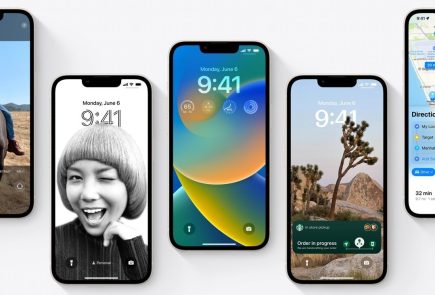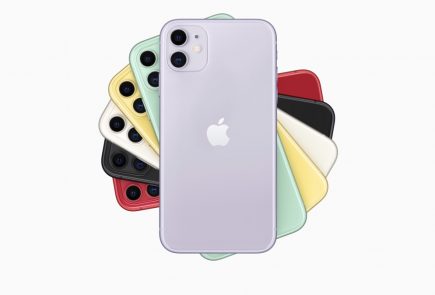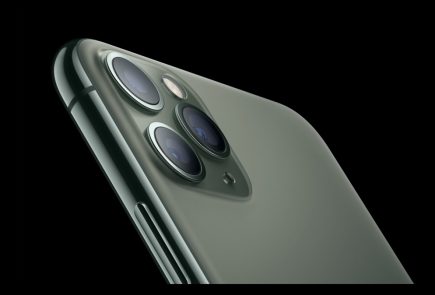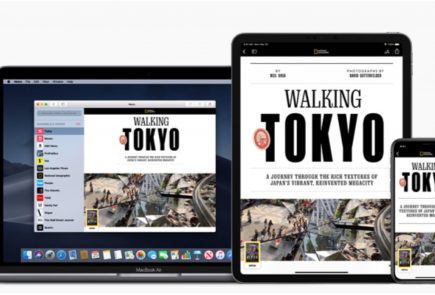As Apple Retires iTunes, Here Is How It Paved The Way For Modern Music Platforms
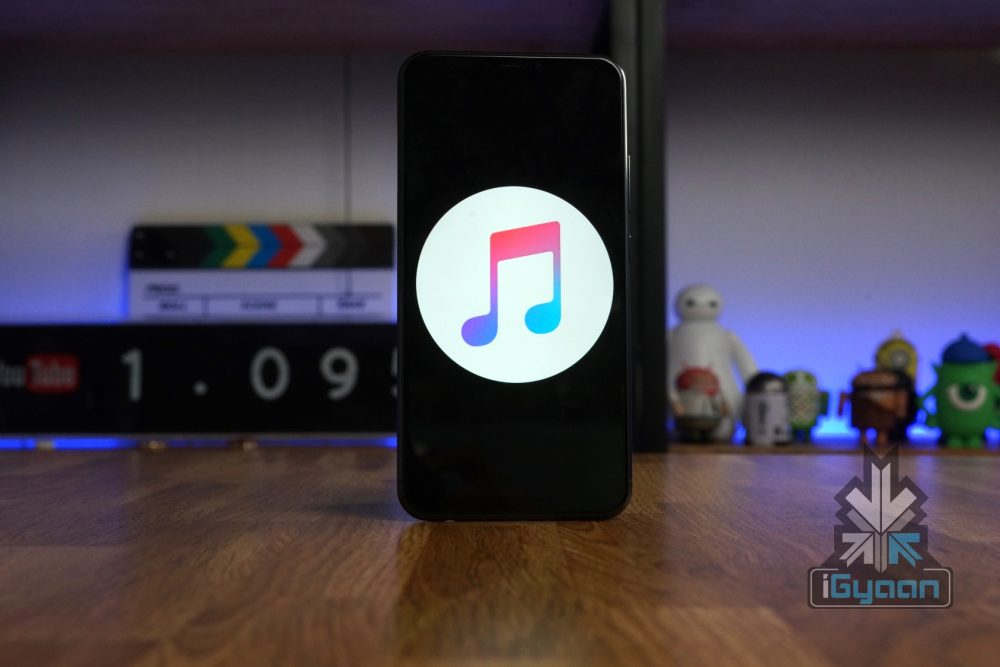
When Apple first unveiled iTunes back in the year 2001, it revolutionized the music industry. Changing the way people purchased music and digital albums, iTunes remained as an iconic music symbol until now, because Apple has decided to break iTunes apart. iTunes is splitting into three different applications, namely Music, TV and Podcasts. However, the application will stay intact as a standalone iOS application and on Windows PCs. Let’s have a look at the interesting journey of iTunes through the years.
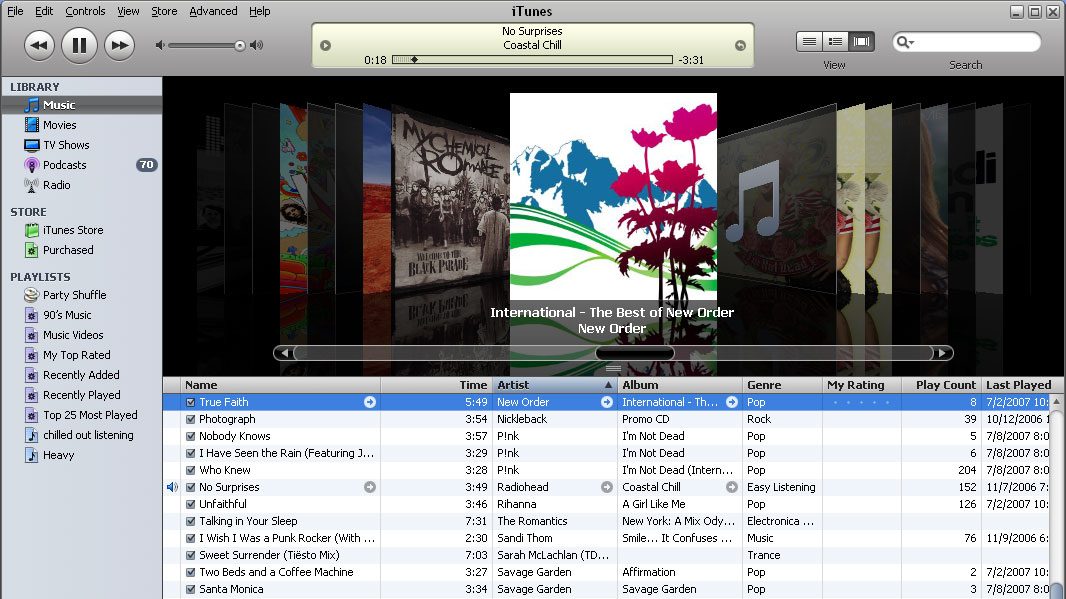 Formally launched on 9th January 2001, iTunes was introduced at a time where music was hugely downloaded via pirated websites and file-sharing platforms. The application had a fairly simple user interface, which made it easy for users to get accustomed to it. It had a simple billing procedure and a detailed yet vast catalogue of music and albums for users to pick from. In a nutshell, the iTunes application provided one of the best user experience at its time.
Formally launched on 9th January 2001, iTunes was introduced at a time where music was hugely downloaded via pirated websites and file-sharing platforms. The application had a fairly simple user interface, which made it easy for users to get accustomed to it. It had a simple billing procedure and a detailed yet vast catalogue of music and albums for users to pick from. In a nutshell, the iTunes application provided one of the best user experience at its time.
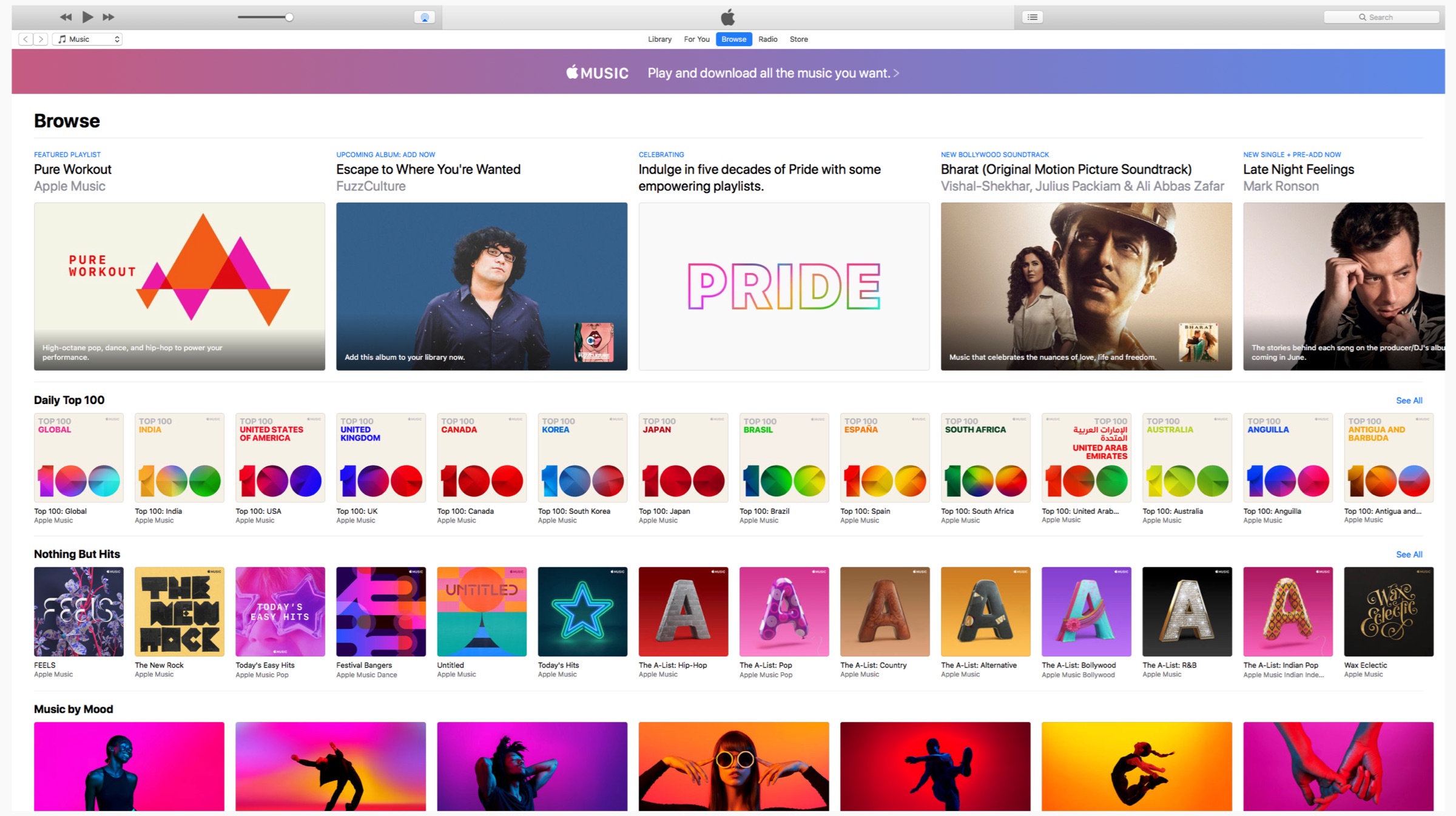
In the year 2003, iTunes made its way onto the Windows platform. This drastically expanded the reach of the application and made it accessible to a lot more users. This also removed the doubts regarding iTunes being an Apple-only service. However, Apple’s strategy regarding iTunes has always been closely linked with its devices, including iPhones, iPads and MacBooks.
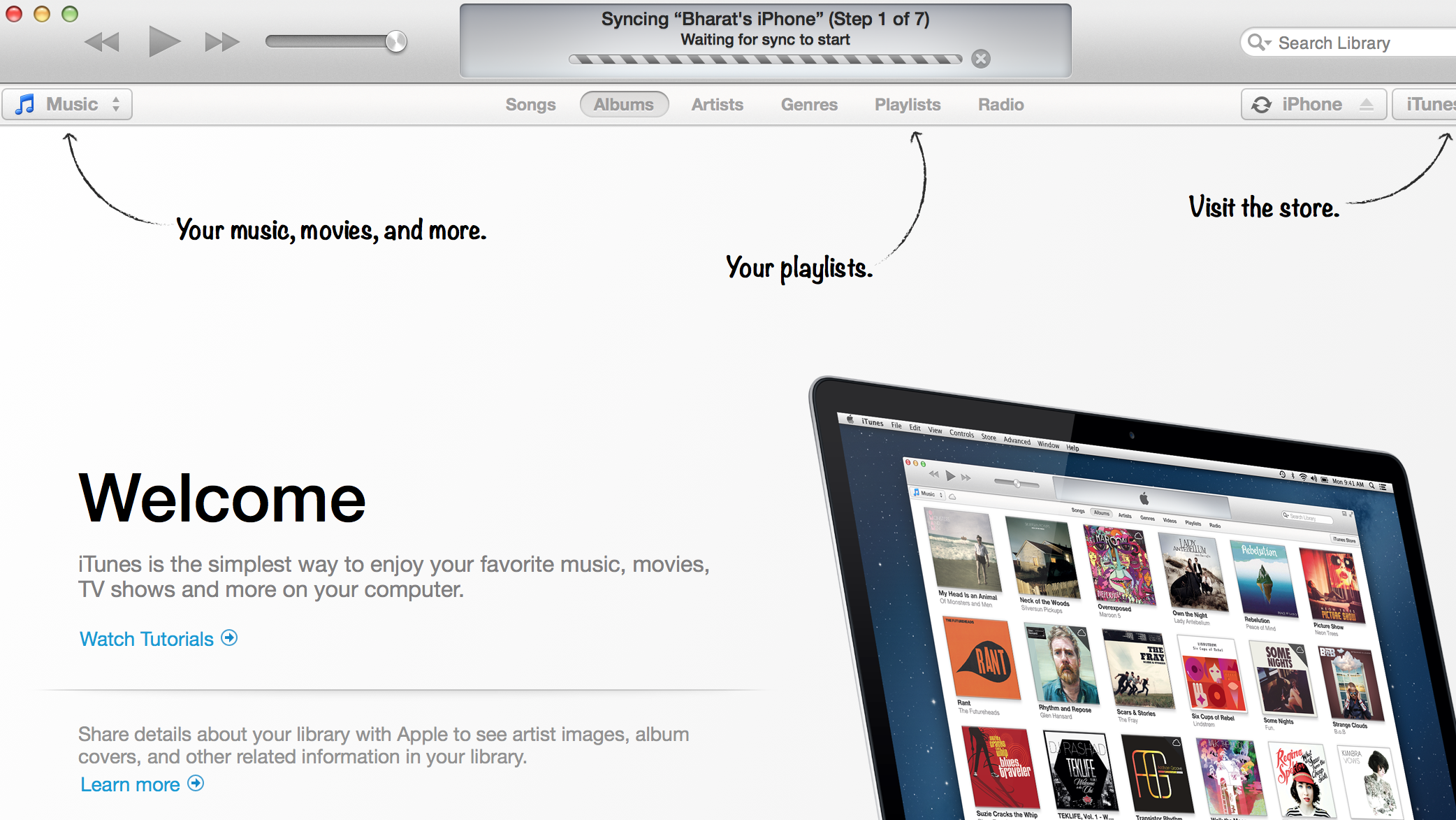 Almost two years later, iTunes started offering TV shows for purchase. This marked one of the most defining eras for iTunes, where music was sold alongside videos, making iTunes the perfect go-to entertainment platform. If that wasn’t enough, Apple also introduced movies on iTunes in the year 2006. Apple was tasting a lot of success with its entertainment platform, so it decided to launch the ‘Genius’ feature within iTunes, which recommended new music to users based on previous listening patterns.
Almost two years later, iTunes started offering TV shows for purchase. This marked one of the most defining eras for iTunes, where music was sold alongside videos, making iTunes the perfect go-to entertainment platform. If that wasn’t enough, Apple also introduced movies on iTunes in the year 2006. Apple was tasting a lot of success with its entertainment platform, so it decided to launch the ‘Genius’ feature within iTunes, which recommended new music to users based on previous listening patterns.
2008 was a really big year for Apple since iTunes became the largest music retailer in the United States. This literally marked the death of record stores, since most users were directly purchasing music from the iTunes store. To enhance the “music anywhere” functionality, the company launched iCloud almost 3 years later. It allowed users to back up their music files and other documents to the cloud. This meant that with an internet connection, users could access their music from any location.
With The launch of the iPhone in subsequent years, Apple required an initial setup and sync to be done using iTunes, and while this process has been reduced to device restores and wireless updates. iTunes will always be remembered as the pain point and the weak link for iPhone Jailbreakers.
In 2010 Apple also attempted to create a music social network dubbed “Ping”. This allowed users to follow artists and see short, timely postings by both friends and artists. This didn’t work as expected and Apple shut it down in 2012.
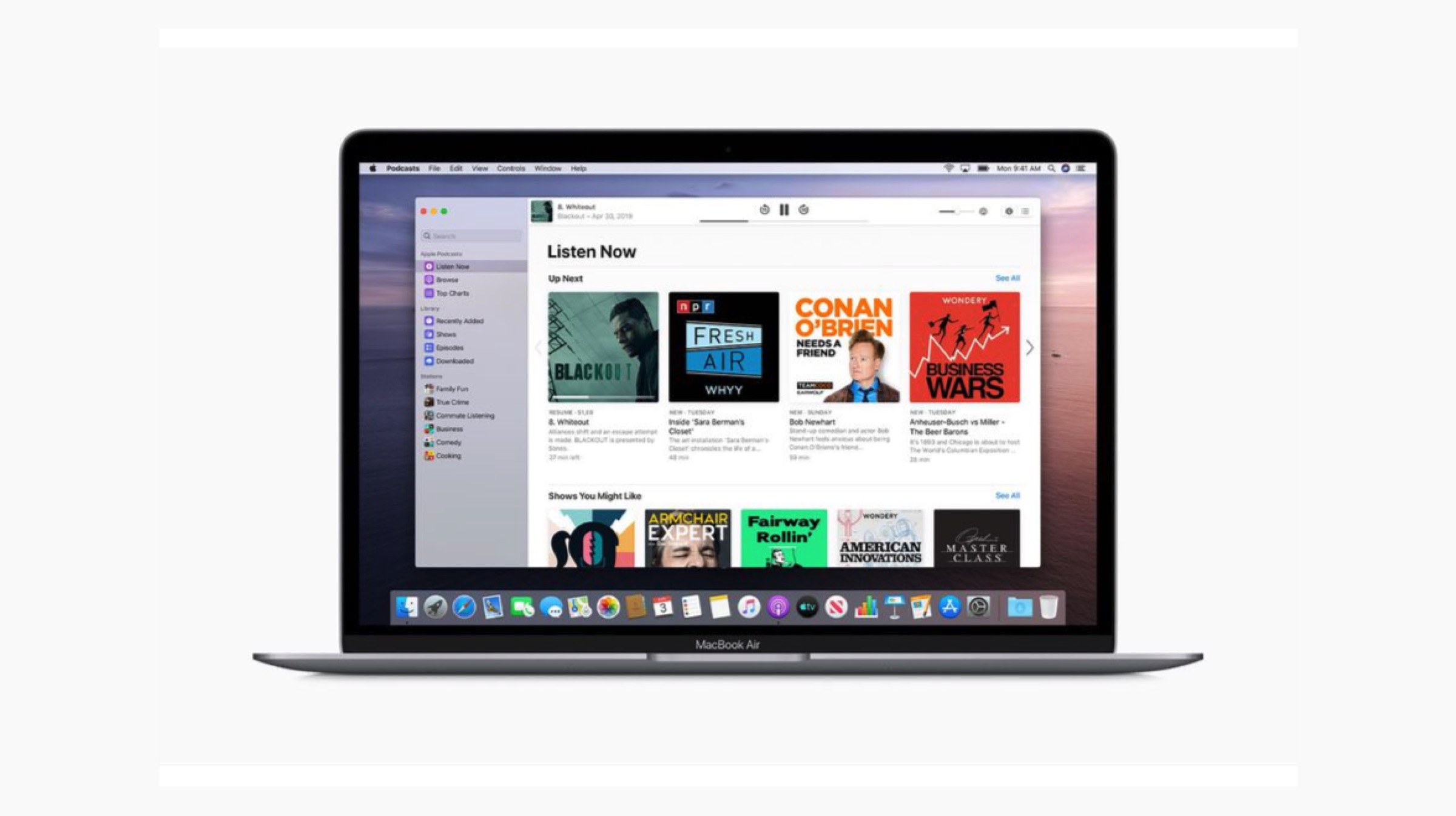
Skip forward to the present year, a lot of users were skeptical about iTunes’ departure from the scene. However, analysts stated that the iTunes shut-down is an integral part of Apple’s strategy to focus on subscription content and services. This will help Apple in radically boosting its revenue based on selective content delivering. Statistics exhibit that subscription services made up for about 80 percent of all online music and video revenue in the year 2018. Stats further reveal that Apple currently boasts of almost 56 million paying customers, indicating why it decided to branch out to three different applications instead of a single application.
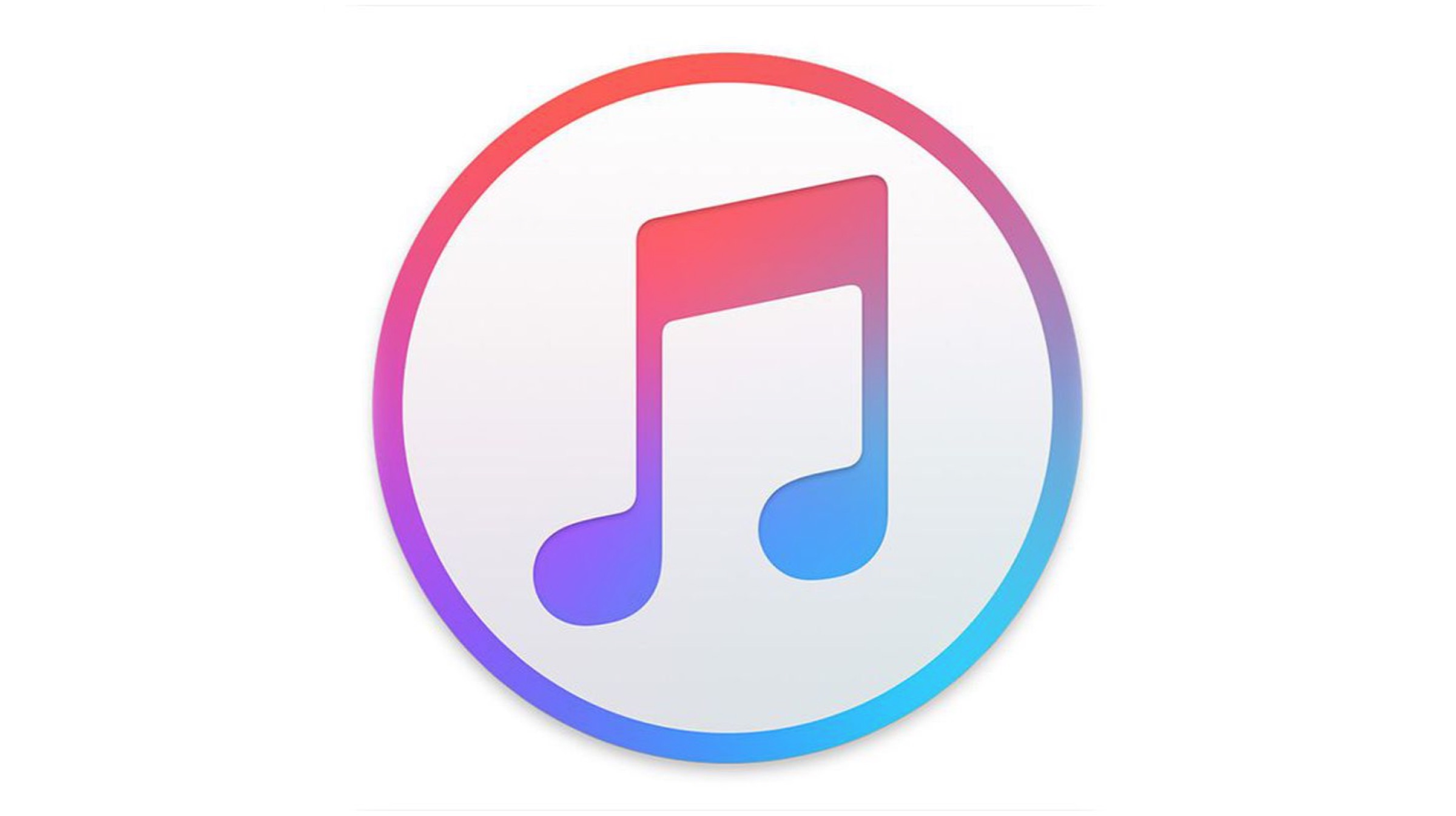
Also Read: Apple Showcases The Updated watchOS 6 and tvOS 13 At WWDC 2019
Apple shutting iTunes doesn’t imply that all the content owned by users will be deleted in one go. The company will release some information shortly regarding the downloaded content. Expectedly, the content will be managed via Apple Music and other applications. Nonetheless, iTunes will always be one of those applications that revolutionized the whole culture of the entertainment when it was turning digital. And it did so in a way that a huge chunk of users depended on it for their daily dose of music and movies. Hopefully, Apple continues to introduce similar overhauls to the newly formed applications that can make up for the removal of iTunes from the Apple ecosystem.
















